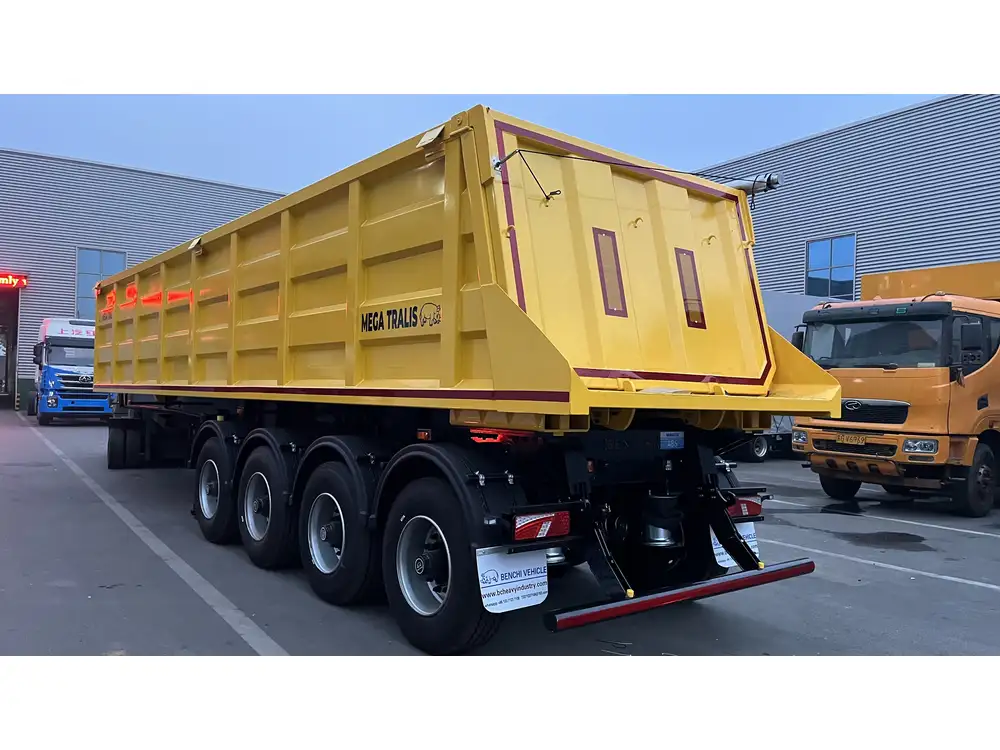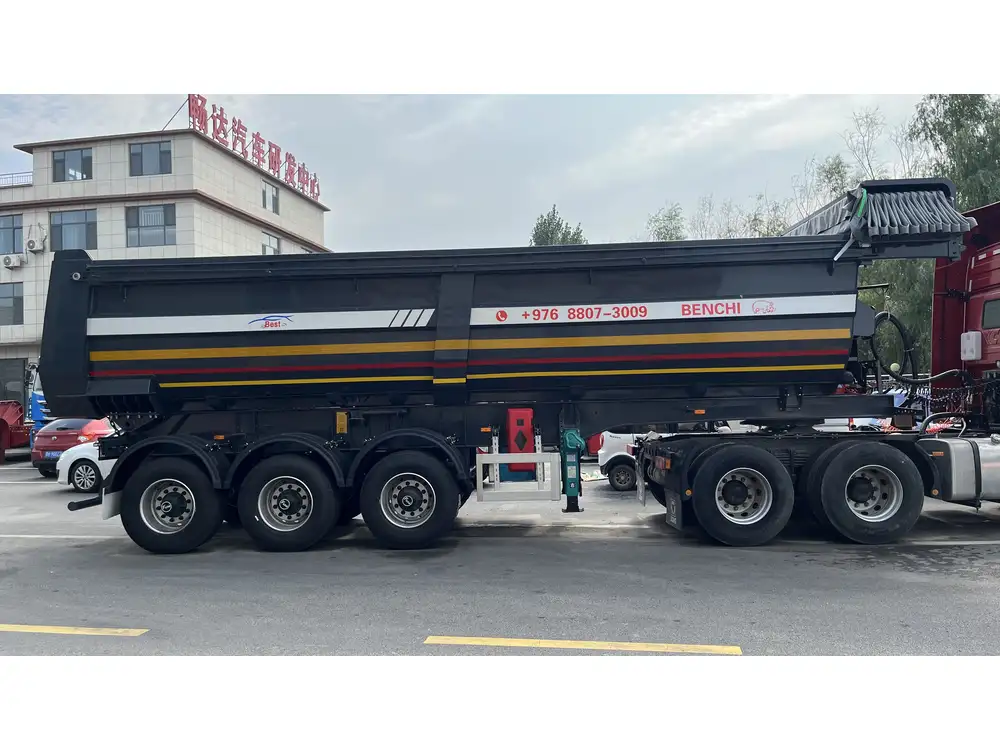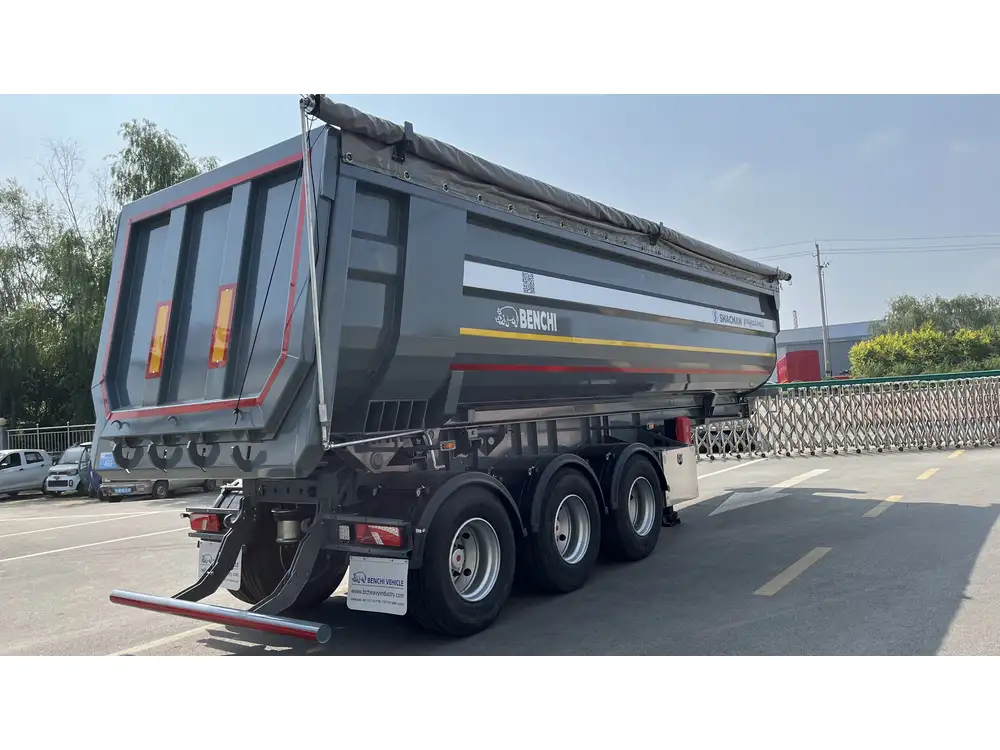Understanding the Basics of Towing
When it comes to towing capabilities, several factors come into play, especially when considering the unique requirements of an RV 5th wheel trailer. Knowing whether a semi truck can effectively tow one requires a deep dive into specifications, coupling mechanisms, and guidelines.
What is a 5th Wheel Trailer?
A 5th wheel trailer is designed to be towed by a pickup truck or a semi truck equipped with a special hitch. This type of trailer utilizes a coupling mechanism that sits above the truck’s rear axle, allowing for improved weight distribution and stability compared to conventional bumper pull designs. Here’s a quick overview of how they differ:
| Type of Trailer | Coupling Mechanism | Weight Distribution | Stability Level |
|---|---|---|---|
| Bumper Pull | Hitch attached to bumper | Poor | Moderate |
| 5th Wheel | Hitch mounted over axle | Excellent | High |

Semi Trucks and Their Capacities
Semi trucks, commonly used in freight transport, come with robust engines that typically offer power outputs ranging from 400 to 600 horsepower, alongside torque ratings upwards of 1,000 lb-ft. These specifications are critical because they allow semi trucks to handle significant loads, making them potential candidates for towing RV 5th wheel trailers. Here are some key attributes of semi trucks:
| Feature | Details |
|---|---|
| Engine Power | 400 – 600 HP |
| Torque | 1,000+ lb-ft |
| Towing Capacity | 20,000 – 80,000 lbs (depending on the model) |
| Wheelbase | 10 – 24 ft |
Can a Semi Truck Pull a 5th Wheel Trailer?
Yes, a semi truck can indeed pull a 5th wheel trailer, but several vital considerations must be accounted for to ensure safety and compliance with regulations.
Key Factors for Successful Towing
Weight Limitations: Always check the Gross Vehicle Weight Rating (GVWR) of both the semi truck and the 5th wheel to verify they align for safe towing. A mismatch can lead to accidents and damage to both vehicles.
- A typical 5th wheel may weigh anywhere from 7,000 to 20,000 lbs, which should be manageable for most semi trucks under the right configurations.
Hitch Compatibility: The hitch system plays a crucial role. A semi truck must have a compatible 5th wheel hitch, which attaches to the truck’s frame rather than the beds, as pickup trucks do. Ensure it is rated to handle the loads expected during the journey.
Hitch Type Max Weight Rating Sliding 5th Wheel 20,000 – 30,000 lbs Fixed 5th Wheel 16,000 – 28,000 lbs Trailer Brake Systems: 5th wheel trailers must have a functioning brake system often linked to the semi truck’s braking system. The connection between these systems can greatly improve safety and control during transit.
Legal Considerations: Depending on the jurisdiction, there may be specific regulations governing the towing of trailers by commercial vehicles. It’s imperative to research area requirements, such as:
- Length limitations
- Weight restrictions
- Licensing requirements

Advantages of Using a Semi Truck for Towing RV Trailers
Using a semi truck to tow a 5th wheel trailer comes with unique benefits that may enhance the overall road experience:
Increased Power: The superior engine power of a semi truck affords greater towing capabilities, allowing you to ascend hills and navigate challenging terrains with ease compared to lighter-duty trucks.
Enhanced Stability: The design of a semi truck and the above-axle hitch mechanism of the 5th wheel contribute to stability, minimizing swaying and improving the handling characteristics during transport.
Extended Driving Range: For long hauls, semi trucks equipped with larger fuel tanks deliver longer driving ranges than standard pickup trucks, allowing for fewer fuel stops in remote areas.
Challenges to Consider
While there are many advantages to using a semi truck to tow a 5th wheel trailer, there are also challenges one must navigate.
Maneuverability Issues
Semi trucks have larger turning radii compared to standard pickup trucks. This aspect can hinder your ability to maneuver in tight spaces like campgrounds or small parking lots.

Height Limitations
The height of a 5th wheel trailer coupled with a semi truck can lead to clearance issues under low overpasses and bridges. Proper measurement and route planning are necessary to avoid potential hazards.
Choosing the Right Semi Truck for Your 5th Wheel Trailer
When selecting a semi truck for towing a 5th wheel trailer, certain aspects should be prioritized to ensure safety and optimal performance.
Engine Specifications
Opt for a semi truck with a powerful engine capable of handling additional weight. Consider models designed specifically with towing in mind, as they often come equipped with features that enhance capability.
| Truck Brand | Common Models | Horsepower Range | Torque Range |
|---|---|---|---|
| Freightliner | Cascadia | 450 – 600 HP | 1,650 – 2,050 lb-ft |
| Kenworth | W990 | 500 – 600 HP | 1,650 – 2,100 lb-ft |
| Peterbilt | 579 | 450 – 580 HP | 1,650 – 2,050 lb-ft |

Towing Package Features
A suitable towing package includes enhanced braking systems, auxiliary power connections, and stronger rear suspension to improve hauling capabilities.
Configuration and Setup
Ensure the truck is set up appropriately for towing, which involves checking the transmission, torque converter, and drivetrain alignment. Consult with experienced technicians for optimal results.
Common Questions and Considerations

What is the Best Hitch Height for Towing?
Depending on the height of your 5th wheel trailer and the specifications of your semi truck, the ideal hitch height typically ranges between 16 to 18 inches from the ground to ensure proper alignment. Adjustments may be necessary for different towing setups.
Can I Use a Semi Truck for Recreational Towing Daily?
While it is feasible to use a semi truck for weekly recreational trips, consider the wear and tear on the vehicle. Frequent use may require more maintenance than standard recreational towing setups.
What Safety Measures Should I Implement?
- Pre-Trip Inspections: Conduct comprehensive inspections of your semi truck and trailer before departure.
- Load Distribution: Ensure that the weight is evenly distributed on the trailer to avoid swaying or tipping.
- Proper Signaling: Upgrade your signaling and lighting systems to improve visibility, particularly when turning or braking.

Conclusion
In conclusion, yes, a semi truck can pull an RV 5th wheel trailer, provided that all compatibility, weight limitations, legal regulations, and safety measures are adequately addressed. With their superior power, stability, and potential for long-distance travel, semi trucks can serve as viable alternatives for those looking to tow a 5th wheel.
By investing time in selecting the right vehicle, understanding the technical aspects of towing, and following safe operating practices, you can maximize your experience, making your travels hassle-free and enjoyable. Explore your options, consult professionals, and confidently embark on your adventures while using a semi truck to tow your 5th wheel trailer. Embrace the journey ahead with caution, knowledge, and the right equipment.



